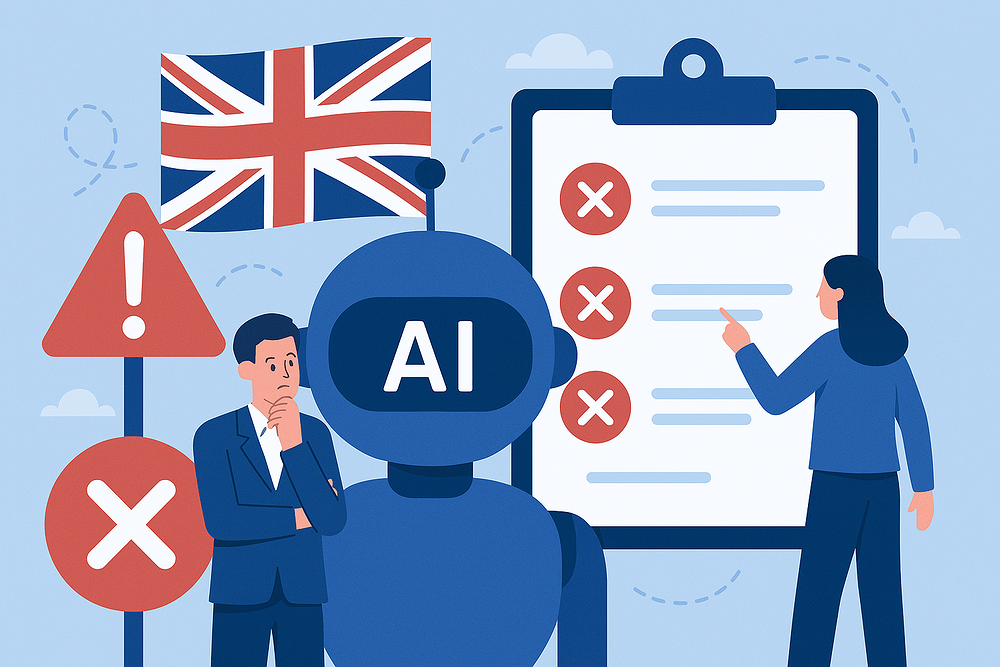Why UK Businesses Can’t Afford to Ignore AI Integration in 2025

In 2025, Artificial Intelligence (AI) is no longer an optional extra or futuristic idea—it's a vital business asset. UK companies that fail to embrace AI risk falling drastically behind in terms of innovation, efficiency, and competitiveness. The urgency around AI integration has never been greater, driven by the rapid pace of technological advancement and heightened customer expectations.
The Current Landscape of AI in the UK
AI technology has swiftly evolved from experimental technology into a foundational business tool. According to recent reports, UK investment in AI is projected to surpass £35 billion by 2025. Businesses across sectors including finance, healthcare, retail, and manufacturing are rapidly adopting AI solutions to streamline operations, improve customer experiences, and gain crucial competitive edges.
Enhanced Efficiency and Cost Reduction
One of the most significant reasons UK businesses must integrate AI lies in efficiency and cost management. AI-powered automation can perform repetitive tasks far quicker and more accurately than human employees. In areas such as customer service, inventory management, and logistics, AI can significantly reduce operational costs. For instance, AI-driven chatbots provide instantaneous customer service around the clock, freeing human teams to tackle complex queries and strategic initiatives.
For UK businesses struggling with tight labour markets and escalating operational expenses, AI integration provides a clear pathway to maintaining profitability and operational excellence.
Better Decision-Making through Advanced Analytics
Decision-making is central to business success. AI integration enables companies to leverage large volumes of data in real-time, offering insights previously unattainable through traditional data analysis methods. AI-driven predictive analytics tools allow businesses to anticipate market trends, optimise resource allocation, and respond proactively to market shifts.
UK businesses harnessing AI-powered analytics have seen enhanced revenue growth by accurately forecasting demand, identifying new market opportunities, and mitigating potential risks before they materialise.
Improved Customer Experience
In today’s highly competitive market, customer experience is a critical differentiator. AI technologies such as machine learning algorithms and natural language processing enable businesses to personalise customer interactions extensively. Personalisation, powered by AI, means offering the right products or services to customers precisely when they need them.
For example, AI-driven recommendation systems can significantly enhance customer retention rates by making relevant suggestions based on individual purchasing histories. Similarly, AI-powered virtual assistants facilitate smooth interactions, significantly boosting customer satisfaction and brand loyalty.
Innovation and Competitive Advantage
Businesses ignoring AI risk stagnation. The integration of AI technologies enables innovation by empowering businesses to develop unique products, services, or operational methodologies that distinguish them from competitors. UK companies investing in AI are more agile, able to pivot rapidly in response to industry disruptions, and positioned as market leaders in their fields.
By contrast, businesses that hesitate risk losing their competitive edge to early adopters who harness AI to drive both innovation and customer satisfaction.
Regulatory Compliance and Risk Management
In sectors where compliance is crucial, AI integration can significantly ease the complexity of regulatory adherence. AI systems ensure continuous compliance through automated monitoring and immediate detection of anomalies. For businesses in finance, healthcare, or data-sensitive sectors, this can mean avoiding costly fines and reputational damage associated with non-compliance.
Moreover, AI-driven cybersecurity tools can identify threats proactively, safeguarding sensitive data and maintaining customer trust—an increasingly critical consideration in our data-centric economy.
Addressing Labour Shortages
The UK has experienced significant labour shortages across multiple sectors. AI integration offers solutions that can bridge these gaps. Automation of routine tasks through AI systems allows businesses to redirect human resources to more strategic, impactful roles, thereby improving employee satisfaction and maximising human potential.
Companies that leverage AI effectively are able to sustain growth without significant expansion of their workforce, an essential strategy in markets facing persistent talent shortages.
Sustainability and Environmental Impact
Sustainability continues to grow as a priority for consumers and businesses alike. AI integration can help businesses reduce their environmental impact through smarter resource management. AI systems optimise energy usage, reduce waste, and contribute to achieving sustainability goals—important not just for environmental responsibility but also for brand image.
UK companies employing AI to enhance sustainability enjoy stronger customer support, often translating into increased sales and brand loyalty.
Challenges of AI Integration and Overcoming Them
Despite the clear benefits, AI integration presents some challenges. Many businesses cite high initial costs, complexity of integration, and skill shortages as barriers. However, these challenges can be effectively managed.
Investing in targeted AI training programs and collaborating with experienced AI integration specialists can greatly simplify the adoption process. In fact, the cost savings and revenue increases resulting from effective AI integration typically far outweigh the initial investment.
Strategic Steps for AI Integration
UK businesses looking to begin or enhance AI integration should follow a strategic approach:
- Evaluate Needs and Opportunities: Clearly identify where AI can offer maximum impact, whether in cost efficiency, customer experience, or compliance.
- Set Clear Objectives: Define measurable goals for AI integration, aligning AI initiatives with broader business strategies.
- Invest in Talent and Training: Ensure teams are adequately skilled or consider partnerships with AI-focused companies who offer expertise.
- Start Small, Scale Fast: Initiate pilot projects to quickly demonstrate value, then scale successful implementations across the organisation.
- Continually Evaluate and Adapt: The AI landscape evolves rapidly—regularly review the effectiveness of your AI strategy and adapt accordingly.
The Imperative to Act Now
In 2025, AI integration is not just advantageous—it's essential. The longer UK businesses wait, the greater the risk of competitive disadvantage. AI integration unlocks new efficiencies, customer satisfaction levels, compliance assurances, and sustainable practices critical for long-term success.
The UK market is already witnessing a widening gap between AI-adopters and those hesitating. Those integrating AI today are seeing rapid benefits, while businesses that delay risk becoming obsolete.
Conclusion: AI as the Cornerstone of Future Success
AI integration is reshaping the business landscape in the UK. It is the key to efficiency, innovation, and growth, and no business can afford to ignore its transformational potential. UK companies embracing AI today are positioning themselves as leaders, driving success not just for 2025, but for years beyond.
Ignoring AI is not merely a missed opportunity; it’s a fundamental strategic risk.
UK businesses that act decisively to integrate AI will emerge stronger, more resilient, and ready to face the future. The time for UK businesses to act is now—AI integration is no longer optional; it’s imperative.
Talk to us about your next project
Our team of experts is ready to help bring your ideas to life with solutions tailored to your business.
Get in Touch

